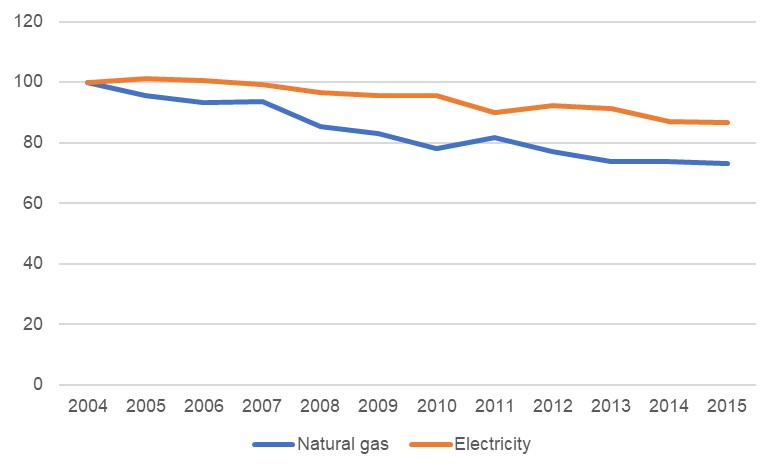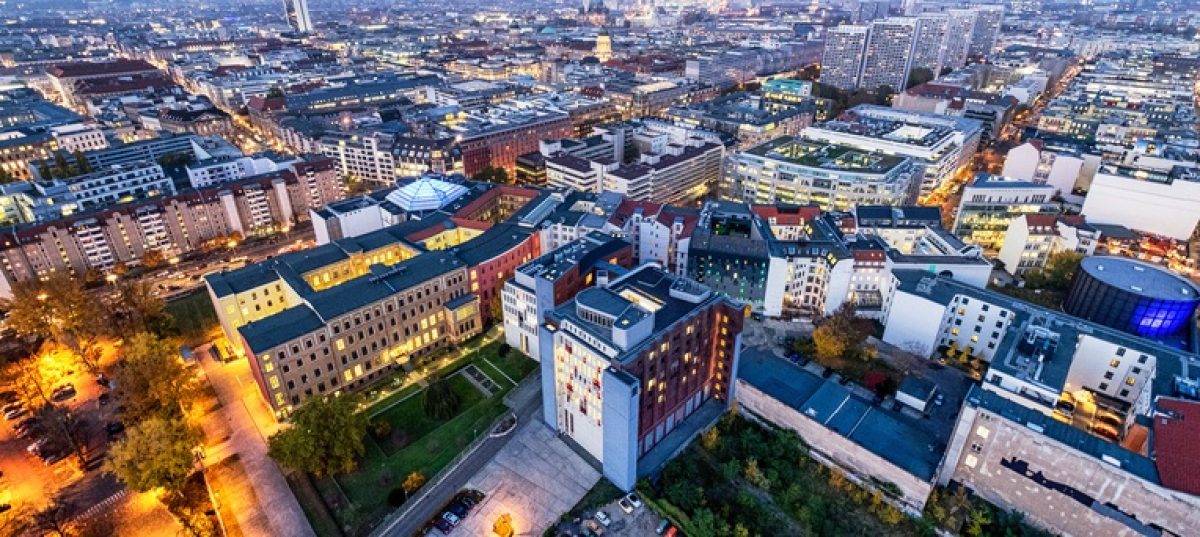By Tina Fawcett and Jan Rosenow
Introduction
Elizabeth Shove’s recent paper ‘What is wrong with energy efficiency’ (Shove, 2017) set out three key challenges to energy policy researchers (and others) – to take stock, to reflect on the consequences of our work, and ‘to develop strategies and solutions that challenge rather than reproduce increasingly problematic assumptions about present and future ways of life’. Here, we respond to the first two challenges to present a positive and nuanced account of the role of energy efficiency, based on experience in the UK and EU. We question the assumption underlying the third challenge, that current levels of energy services are incompatible with a low carbon future.
Our aim is to add to a constructive debate on energy efficiency, its role to date, and its place in the low carbon transition.
Firmly in the mainstream or Cinderella?
The paper characterises energy efficiency as being firmly in the mainstream of energy policy making. Citing an IEA report, the paper claims that “[i]n the energy world, efficiency is treated as a ‘fuel’”. But is it? The IMF (2015) estimated that global energy supply subsidies amounted to $5.3 trillion in 2015. This compares to just $221 billion invested in energy efficiency (IEA 2016) which is approximately 4% of the total global energy subsidies. It is a large amount of money but compared to subsidies for energy supply it is very small. Further, investments in efficient solutions are impeded by numerous market barriers to individual action; and on the supply side, industry traditions, business models and regulatory practices have always favoured, and continue to favour, fossil fuel based energy infrastructure and sales over lower sales and energy saving technologies.
Characterising energy efficiency as “politically attractive” and “uncontroversial” is contrary to the experience of those working on energy efficiency policy. As Nick Butler (2014), former Group Vice President for Policy and Strategy Development at BP, puts it “[e]fficiency is the neglected Cinderella of the [energy] policy world”. Current debates around energy efficiency at European level are highly political and far from being uncontroversial (see for example Rosenow 2017).
Challenging current levels of energy services would undoubtedly be more politically sensitive and controversial than promoting energy efficiency. However, the many political, market design and financial challenges facing efficiency should also be acknowledged.
How effective are energy efficiency policies?
The paper’s fundamental argument is that “the problem with efficiency policies is that they are much too effective, not in reducing demand but in reproducing and stabilizing essentially unsustainable concepts of service”. The first part of this statement suggests that efficiency policies do not reduce demand.
However, there is strong evidence for demand reduction due to efficiency policy. For example, in the UK’s residential sector, total energy use fell by one fifth between 2004 and 2015, despite a 12% increase in the number of households – as shown in the graph below.

Index of total residential electricity and gas use, where gas figures are weather corrected, UK, 2004-2015 (2004 = 100). (Source: BEIS (2017): Energy Consumption in the UK)
Average household energy use fell by 27% over this time, despite a proliferation of household appliances and lamp fittings per household and higher in-home temperatures (BEIS 2016). Sceptics will argue that this was driven by an increase in energy prices, not policy. However, price elasticities of energy demand are very low – a review of the literature concluded that “[p]rice increases […] do not lead to strong demand reductions” (Jamasb and Meier 2010:3). In addition, several thorough quantitative studies show that efficiency improvements were by far the most important driver of the reduction in consumption (CCC 2017; CEBR 2011; Odyssee 2017).
Levels of service – does efficiency promote an unsustainable status quo?
The second part of the argument is that energy efficiency maintains ‘unsustainable concepts of service’. Further, these service demands are presented as a key barrier to a low carbon future, but without specifying supporting evidence. By contrast, many detailed studies and scenarios show it is possible to have lower carbon futures through varied mixtures of energy efficiency, fuel switching, better control, demand response and renewable energy, while maintaining current service standards (Boardman, 2012; CCC, 2015; IEA, 2013; National Grid, 2017). If current service expectations really are unsustainable – strong evidence needs to be put forward to make the case. Not least because of the very high public and political priority afforded to key energy services such as universal minimum levels of household warmth (Public Health England, 2014).
Good and bad energy efficiency
Energy efficiency is, or should be, part of the whole systems energy policy mix (including renewable and low carbon energy sources, demand response, smart systems) which delivers low carbon, secure and affordable energy. We agree with Wilhite and Nørgård (2004) that energy efficiency programmes should to be designed with the aim to reduce total energy consumption levels rather than focusing solely on relative efficiency improvements. For us, this is ‘good’ energy efficiency, with further ideas on how energy conservation can be designed into efficiency policy to be explored (e.g. Harris et al. 2008).
Shove is right that we should reflect on the effects of energy efficiency – to be sure it continues to meet socially agreed goals, and does not have adverse consequences. We must recognise that energy efficiency can facilitate increasing demands for energy service. We should also acknowledge that this can sometimes be a good thing: it can deliver important energy services to people who could not access them otherwise. In developed countries, energy efficiency can deliver affordable warmth to people living in fuel poverty (Boardman 2010). In developing countries, efficient lighting, often in combination with small scale renewable energy supply, and more efficient cook stoves can be transformative (UNEP 2016). In reaching a low carbon future, both challenging (increasing) energy service standards and delivering effective energy efficiency will be important.
Conclusions
We think there is a lot right with energy efficiency. There is robust evidence that it has reduced total energy demand and consequent carbon emissions, despite many other drivers of growth. We suggest that rather than being a barrier to the low carbon transition, energy efficiency is a vital part of it.
However, energy efficiency is still not sufficiently in the mainstream of energy policy. By asserting that energy efficiency does not work, Shove risks taking the same side as those who defend the status quo and want to marginalise the demand side. We do not believe this is her intention, and invite her to reconsider her view of energy efficiency and its place in delivering a radically lower carbon future.
About the authors

Dr Tina Fawcett is a Senior Researcher and Acting Deputy Leader at the Environmental Change Institute, University of Oxford. ORCID: 0000-0003-3953-3675

Dr Jan Rosenow is a Senior Research Fellow for the Centre on Innovation and Energy Demand at the Sussex Energy Group in the Science Policy Research Unit (SPRU), University of Sussex and Senior Associate of the Regulatory Assistance Project. ORCID: 0000-0002-5227-3129
This work was undertaken as part of the research programme of the UK Energy Research Centre, supported by the UK Research Councils under EPSRC award EP/L024756/1.

When increasing energy efficiency is a technically simple exercise for those with control of property and resources, providing work and incomes, demanding that people with less resources should accept a reduced energy service is using property as a weapon to persecute the poor.
LikeLike